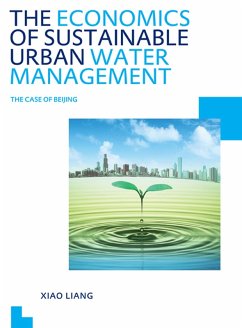The book aims to use economics to assess water systems for sustainable urban water management. An integrated and quantitative analysis of the economic, environmental, and social effects of water systems considering the viewpoints of different stakeholders is carried out, which is rare in the existing literature. The research employs the methods of cost benefit analysis, linear programming, and rough set analysis. Through the case of Beijing, the book shows that economics contributes to identifying the non-technical problems in water systems and can help decision makers to make choices that are consistent with the long-term well being of the community.
Dieser Download kann aus rechtlichen Gründen nur mit Rechnungsadresse in A, B, BG, CY, CZ, D, DK, EW, E, FIN, F, GR, HR, H, IRL, I, LT, L, LR, M, NL, PL, P, R, S, SLO, SK ausgeliefert werden.









